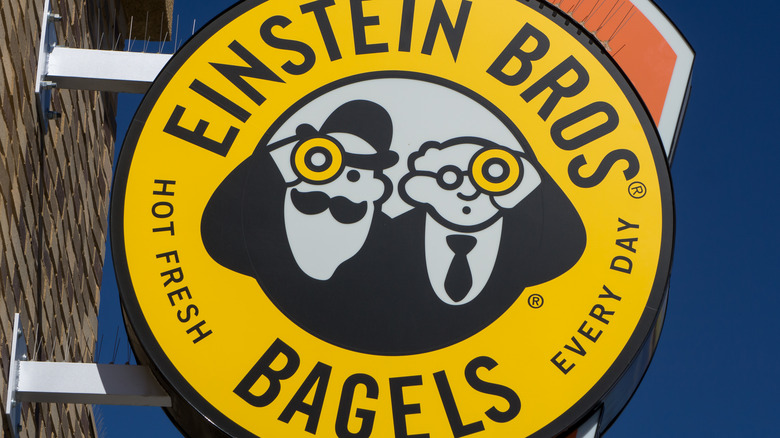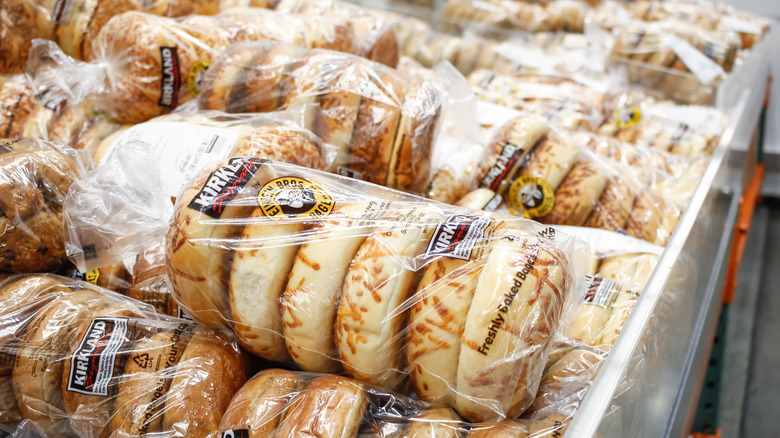Why Einstein Bros. Bagels Changed Their Chicken Standards
Regional breakfast chain Einstein Bros. Bagels recently announced, in a press release, a change in its chicken sourcing, promising to ensure by 2024 that all chicken is sourced in alignment with Global Animal Partnership (GAP) standards. This means that the chain will only source breeds proven to have a higher welfare outcome, chickens that receive enough space per GAP guidelines, chickens with improved living environments, and chickens that have been processed humanely.
The brand said the decision comes as part of its commitment to bring consumers a higher-quality product. Sourcing humanely raised and processed chickens impacts the end product that winds up with the consumer.
It's difficult to tell, though, how much this will impact Einstein Bros. Bagels, as chicken products (save for eggs) aren't exactly plentiful on the menu. In fact, the current menu, as of mid-August 2021, includes no items that contain chicken meat; the Einstein Bros. Bagels announcement applies only to broiler chickens, which are raised specifically for meat, not eggs (via the National Chicken Council).
The change to chicken standards is part of a larger initiative
However, while this switch isn't as groundbreaking for Einstein Bros. Bagels as it would be for a primarily chicken-reliant restaurant brand, such as KFC, it is part of a larger initiative that the restaurant has enacted to provide menu items that are better for consumers, the planet, and animal welfare (and that just taste better overall). Calling the initiative "the good-food fight," Einstein Bros. Bagels has made its commitment part of its brand identity.
According to the same press release, Einstein Bros. Bagels has also committed to only serving cage-free eggs, artificial preservative-free meat, nitrate-free bacon, and artificial flavor-free cheese. In early 2020, the brand also announced a renewable energy agreement that impacted all locations in Texas. The switch to renewable energy, the brand said in a release at the time, was equal to removing more than 28,000 barrels of oil from public consumption, or the same amount of carbon that would take 322,000 trees 10 years to sequester.

